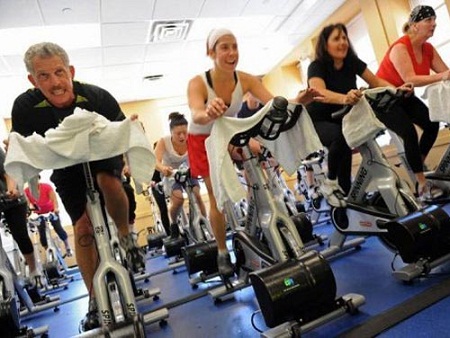Do to the mind sharp?
Scientists have just demonstrated that the weekend sleeping habits have an effect on strengthening the brain, making us more resilient and excited for the new work week. In addition to sleeping for the rest of the day, there are many ways to help us strengthen our brain. That is:
Do exercise
Research by Cambridge University (UK) has just given another proof of the link between physical health and mental health. Accordingly, just jogging twice a week will help stimulate the brain to produce new cells in the brain region that govern the formation and storage of memories. Improving memory capacity not only directly affects the tasks that require brain manipulation, but also helps delay the process of intellectual decline as you get older. Meanwhile, scientists found that the exercise required a lot of exercise to stimulate the body to produce noggin protein. This substance acts to activate the process of stem cell division in the brain, thereby helping us to be flexible and active in old age. Research suggests that increased release of noggin may help prevent the development of dementia such as Alzheimer's.

Illustration. Internet source
Nap
For a long time, scientists know that sleep has a significant effect on memory capacity. And a recent study concluded that taking a nap for about an hour each day boosted the brain and significantly increased the brain's ability to receive new information. Sleeping a little after lunch helps the brain recover its productivity, giving the brain time to rearrange old information to easily receive new information. From the study results suggest that day-to-day workers are less likely to be sensitive to learning by taking a nap, experts conclude that mid-day sleep habits may help to reduce the risk of degenerative diseases. age memory.
Eat magnesium rich foods
Foods rich in magnesium such as spinach, broccoli . are good for the brain. Recent research published in the American Journal of Neuron shows that high levels of magnesium in the brain are useful for learning in young people and the elderly.
Exposure to the sun
Regular exposure to sunlight can help boost your brain and prevent the risk of dementia. High levels of vitamin D, synthesized by the body when it is sunny and also in oily marine fish, are thought to help the brain stay in the best condition when we get older. Recently, a study published in the journal Neurology suggests that the relationship between high vitamin D content and rapid information processing is particularly evident in people over 60 years of age.
Cut grass
The grass when cut often secretes a substance that not only reduces mental stress (stress), makes the mind feel better but also helps to prevent the process of memory decline in the elderly. Australian scientists have found that the scent of newly cut grass directly affects brain activity, especially in the center of emotions and memories.
'That' and chocolate
In 'Train Your Brain' , the British authors Simon Wootton and Terry Horne claim to eat a lot of chocolate, regular 'rain clouds' that boost brain power. tell. How does diet analysis, living environment and stress affect mental health, and suggests that mental capacity is not only determined by genes but also by the way of life.
Study music
A study has shown that children who learn music develop brain and have better memory than their peers. Specifically, they often achieve better results in literacy, math, word memory and intelligence tests. In addition, music has the ability to improve the brain in children 4 years old.
Listen to mom chat
Experts find that young children often hear their mother talking and have more developed minds. According to research by Northwestern University (USA), words play an extremely important role in children's brain development even when they are not able to speak. The classification of words based on images at a young age also positively supports the child's brain development later.
Play blocks
Block games work well for children's brain development, according to American scientists. Although block games are much simpler than playing electronic games, practicing everyday will help increase brainpower and improve thinking. After 3 months asking the volunteers to play blocks, the team found that through the tomography, their brains had a lot of structural changes in areas related to activity, evaluation, reasoning. Comment, language and information processing.
- Curiosity will explore Sharp Mountain on Mars
- 7 effects of lotus mind few people expected
- The human mind was re-sketched beautifully
- Sharp introduced high-end LCD for handheld devices
- Mo Moi rolled to Sharp Mountain on Mars
- Video: See what a sharp knife can do?
- Control your tablet, smartphone by thought
- Blind eyesight - The strangest state of awareness
- America makes mind reading machines
- 5 ways to improve your mind
- Mars 'super sharp' image of 'Curious'
- Drinking water helps to be more lucid
 Green tea cleans teeth better than mouthwash?
Green tea cleans teeth better than mouthwash? Death kiss: This is why you should not let anyone kiss your baby's lips
Death kiss: This is why you should not let anyone kiss your baby's lips What is salmonellosis?
What is salmonellosis? Caution should be exercised when using aloe vera through eating and drinking
Caution should be exercised when using aloe vera through eating and drinking